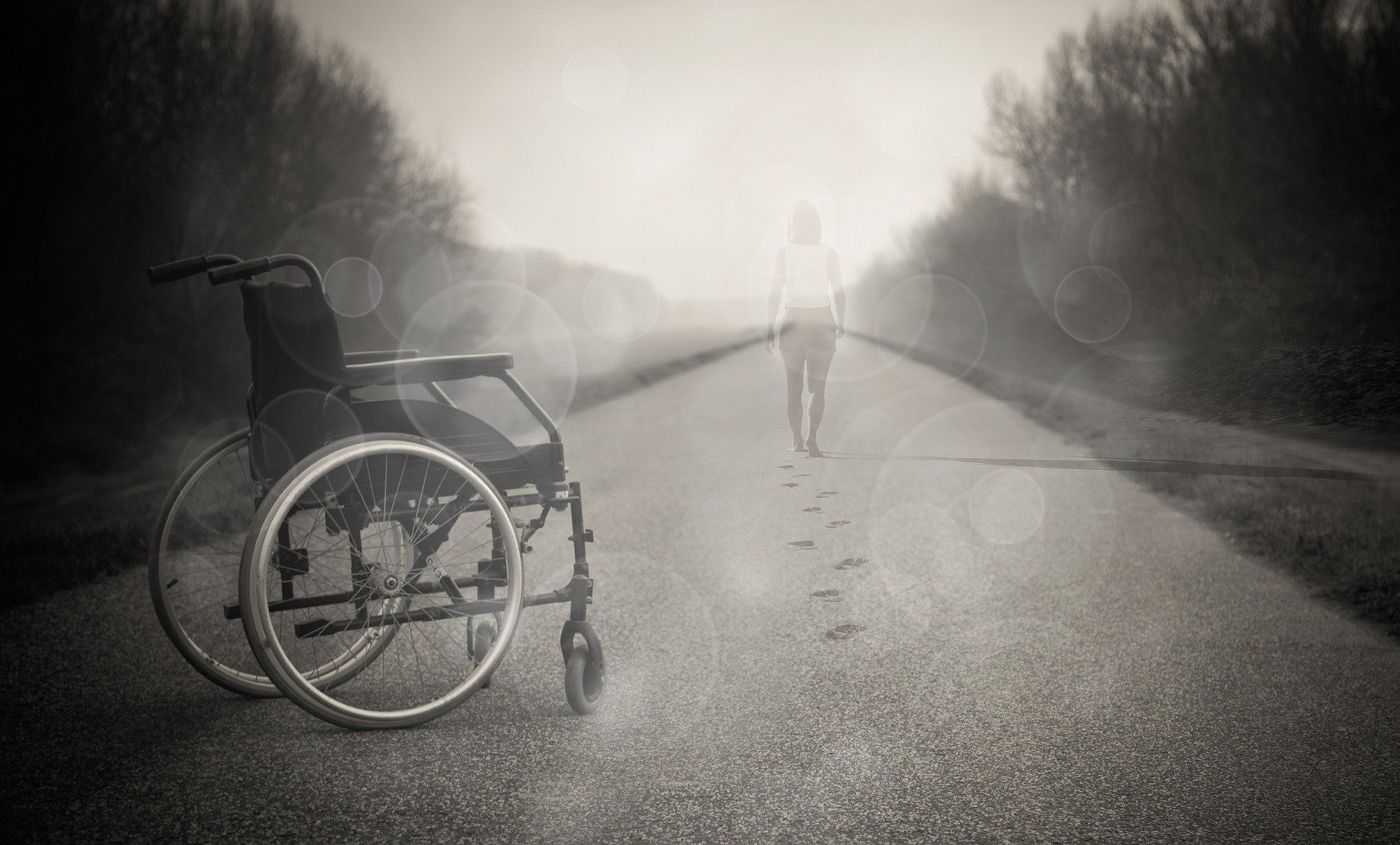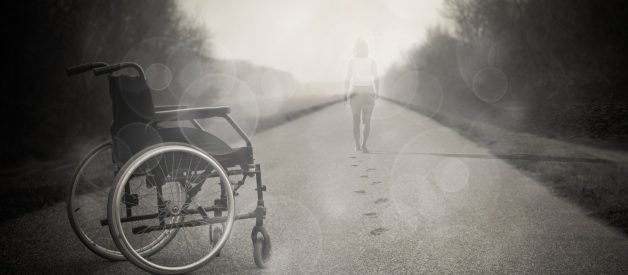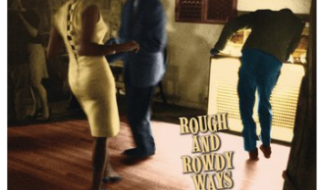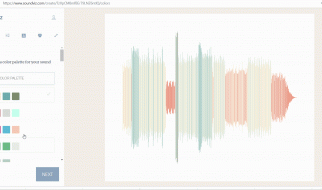
What Is Inspiration Porn?
You know that grossly saccharine quote from Scott Hamilton? ?The only disability in life is a bad attitude.? You probably saw it on countless posters in school hallways growing up. There was always an adorable child with a visible disability, grinning ear to ear, often with Down?s Syndrome or missing limbs. If not, they used a wheelchair. If it didn?t have this particular caption, it likely said one of several other barf-worthy clichs such as ?What?s your excuse?? or ?Your excuse is invalid.? If you have seen any such imaging, then you have been exposed to inspiration porn.
Now with memes readily available and easily modifiable, you?ve probably viewed one at some point which read something like, ?Never ignore somebody with a disability. You don?t realize how much they can inspire you!? Well, damn. Apparently, the reason to pay attention to other humans is not that they are living beings with thoughts, feelings, ideas, and inherent worth. Nope! They are here for you to be inspired.
Guess I didn?t get that memo?
Stella Young, an Australian disability activist, and general badass coined the term ?inspiration porn? to refer to this kind of messaging around disability. She explained her reasoning in her 2014 TEDx talk shortly before her passing. It has become a sort of legacy for her life. Stella purposefully used the off-putting term ?porn? because in both sexual and inspiration porn, we see the objectification of people for the benefit of others. In this case, non-disabled individuals benefit from comparing themselves to those with disabilities. (Surely, we can debate whether all sexual porn is objectification or exploitative, but these were Stella?s rationale.)
Stella Young delivers her viral TEDx presentation.
?No amount of smiling at a flight of stairs has ever made it turn into a ramp? No amount of standing in the middle of a bookshop and radiating a positive attitude is going to turn all those books into braille.? ? Stella Young (explaining how Scott Hamilton?s quote misses the point)
Inspiration Porn Is Difficult to Tackle
One of the most challenging issues surrounding inspiration porn is the fact that, in most instances, people truly mean well. If they understood the implications of the statements they made, most would be extremely embarrassed and highly unlikely to continue to say them.
When we objectify people with disabilities for doing things we expect them not to be able to do, we send a message that we have lowered expectations for them from the start. We see them as able to do less, or perhaps incapable altogether. Advocates encourage us to frame it more as being fully capable with appropriate adaptation and modifications.
Do some people?s disabilities prohibit them from doing certain things? Sure. Does the appearance of disability or a specific diagnosis determine what one?s abilities may be? Absolutely not.
But with or without a diagnosis, all human beings are unable to do some things. It?s part of being human.
No one can do it all.
Specific disabilities make some inabilities more likely, but we should never assume inability based on this alone. Within the disability activism community, there is a simple yet effective slogan we?ve historically used:
PRESUME COMPETENCE.
I have a reading comprehension disability. With certain strategies, I am as strong or stronger at reading than many of my peers. If that was a characteristic of mine that was obvious to all, I would probably be seen as incapable of being a great reader.
Presume competence. With the right supports and services, we can all achieve success.
I sit in a wheelchair every day, but I grew up playing adaptive ice hockey. Counter-intuitive to many given the common misunderstandings of what being in a wheelchair indicates about ability.
Presume competence. With the right supports and services, we can all achieve success.
Inspiration porn is only possible when we hold underlying assumptions of incompetence. A little boy in a wheelchair playing basketball should not be celebrated for the fact that he is participating in a typical activity for a child of his age. Are there likely adaptations he needs, or perhaps a different definition of what success looks like for him? Most likely, sure.
It?s like commending someone for doing the basic components of their job. It is expected, and your reinforcement is the paycheck you receive. People with disabilities oughtn?t be given extra commendation for doing things that human beings do typically. However, going above and beyond is something else and deserves to be highlighted.
A person living independently with a disability should not be considered inspirational. That is like being inspired by a parent who feeds their kids. Of course, they do. To not provide for your child is not the general expectation, so why would it be expected of any parent? It?s a requirement, the norm, the default.
So is the ability to take care of ourselves as adults. It?s what you aim for, and you adapt if it isn?t a possibility. Generally, adults live independently from their parents; it?s the norm. And that?s okay if it doesn?t work for you, disabled or otherwise. But I?m not super amazing because it worked for me. You don?t know my strengths and needs.
I am constantly juggling the impossible task of genuinely honoring peoples? good intentions while also trying to educate about why the things they say are so problematic to me. Very often, I am perceived as ungrateful due to this balancing act. I understand why this is the case, but all I want is for people to assume I am a capable human being until I show otherwise.
Presume competence.
Let me make one concept perfectly clear.
This doesn?t mean that people with disabilities cannot be inspiring. It?s just that the fact that they live their life, do what they want and can do, and smile and enjoy the fantastic earth we live on is not reason enough to applaud.
Be inspired by the way someone does something. Are they contagious in their optimism? That?s inspiring! By definition! Others become more optimistic around them? That is special. Not many people have the ability to impact others? mindsets in a positive manner.
But the fact that they happen to have three limbs instead of four while they did so is not what inspired you. Why even bring that factor in? It?s not a factor. Missing limbs are unrelated to positive attitude. To conflate the two cheapens the compliment you are giving. It implies that you view disability as a negative or even tragic experience, enough that the idea of being able to remain optimistic is unfathomable.
Their actions and attitude are what is inspiring, not their disability.
I get told I am brave or inspirational all the time, usually for things I do that are unexceptional for me.
For example, I came home from food shopping one evening and had a bunch of shopping bags on my lap. Despite having my hands full, I opened the door for myself to enter my apartment building. A fellow resident in the complex told me I was so inspiring for getting my groceries and even carrying them home all by myself. My neighbor assumed that people in power wheelchairs could not procure and carry groceries independently. She was inspired by me doing something she thought I couldn?t.
Let?s be real, I have a power chair to hang stuff on; it?s more of a help than a hindrance in this case. (It usually is.) Getting a few bags home is not a task I happen to struggle with.
Every once in a while, people who tell me I?m inspiring aren?t feeling this way based on underlying assumptions, but on apparent merits of my own. It?s refreshing.
For instance, after work one day, I got in the elevator to leave, and it got stuck between floors. The building engineer couldn?t move the elevator but opened the doors. I was unable to get out, and we had to call the fire department. There was another teacher still at the school who remained with me for support. I could look up to her and talk to her, which was helpful. She and I were understandably stressed out because it was a precarious situation. Ultimately, the rescue team needed to hoist me out and subsequently leave my wheelchair behind until they could get the elevator to the ground floor. I sustained minor injuries from the rescue and had to take a day off to recover.
When I came back, this teacher expressed how my ability to face the scary, painful, and highly stressful situation with calm, grace, and humor was impressive to her. I was able to help those helping me by remaining calm and using humor to dispel some stress. It was one of the highest compliments I have ever received. She was inspired by something inherent to the person I am, not by something I did that defied an assumption she had of me based on disability. (She had actually told my class about the incident, how I had behaved, and turned it into a vocabulary lesson on courage. I came back to a stack of ?Get Well Soon? cards with drawings of me in my wheelchair laughing and telling jokes in an elevator. It was one of my favorite memories from my teaching days.)
There are countless factors to consider in how individuals perceive disability, and we will never all agree on a shared vision. One day, we can hopefully find enough common ground to be able to be at peace with having an open, honest conversation about these critical concepts. It is the only way to build a better future of inclusion for all.
It starts with boldly talking about the issues that are uncomfortable to discuss. It?s difficult for me to tell someone that their compliment is actually insulting. It sucks to deliver that message as much as it sucks to receive the commentary, but when met with a defensive response, it is even harder.
Criticism is hard for us all to receive, but we all have changes to make to help ourselves become better citizens in our vastly diverse society. We must give and take constructive criticism with care and mindfulness for each others? perspectives.
My parting challenge for my readers is to keep an eye for opportunities to challenge stereotypes about people with disabilities, especially based on assumptions of ability or lack thereof. Stand, or sit, in solidarity by having the courage to say something when you have the opportunity to challenge stigmas and stereotypes.


